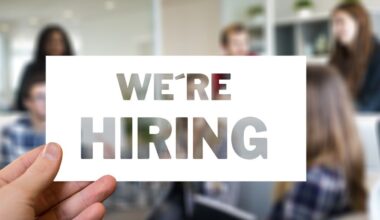The world of work is constantly evolving, and thankfully, so is its approach to inclusivity. People with disabilities bring a diverse range of skills, talents, and perspectives to the table. This article explores a variety of fulfilling career paths for individuals with varying abilities, highlighting the strengths that different disabilities can bring to specific professions.
Finding the Perfect Fit: Matching Skills with Disabilities
When considering career options, it’s important to focus on your strengths and how your unique abilities can benefit a particular profession. Here are some promising career paths for individuals with various disabilities:
For People with Physical Disabilities
Customer Service: Many customer service roles, especially those offering remote work options, can be a great fit for individuals with physical disabilities. These positions often require strong communication and problem-solving skills, which many people with physical limitations possess.
Social Work: Social workers with physical disabilities can bring a unique perspective and empathy to their work, often understanding the challenges faced by individuals with similar limitations. This profession allows for utilizing strong interpersonal skills and a passion for helping others.
Web Development: The field of web development offers excellent opportunities for remote work, making it a great option for individuals with physical limitations that might hinder mobility. Web development requires strong analytical and problem-solving skills, which can be honed through various training programs.

For People with Visual Impairments
Assistive Technology Specialist: Individuals with visual impairments can leverage their lived experiences and knowledge to train and support others who use assistive technologies. This role requires strong communication and problem-solving skills, along with a passion for helping others navigate the world of assistive devices.
Audio Description Specialist: This profession involves creating audio descriptions for films, documentaries, and other visual media, making them accessible to people with visual impairments. Strong listening and communication skills, coupled with a creative mind, are valuable assets for this role.
Data Analysis: Data analysis is a field increasingly open to remote work, making it a good option for those with visual limitations. This profession requires strong analytical and problem-solving skills, along with the ability to interpret complex data sets, which are translatable skills regardless of visual ability.

For People with Hearing Impairments
Web Developer: As mentioned earlier, web development offers excellent remote work opportunities. For individuals with hearing impairments, this field allows them to utilize their strong visual and analytical skills to create user-friendly and accessible websites.
Graphic Designer: Graphic design is another field where visual skills are paramount. People with hearing impairments can excel in creating visually appealing graphics, layouts, and other visual communication tools.
Sign Language Interpreter: This profession is a perfect fit for individuals who are fluent in both sign language and spoken language. Sign language interpreters play a vital role in facilitating communication for those who are deaf or hard of hearing.

For People with Learning Disabilities
Data Entry Specialist: Data entry positions often involve repetitive tasks requiring accuracy and attention to detail, skills that many people with learning disabilities excel at. These roles can be a great starting point for building a strong work ethic and computer skills.
Customer Service Representative: Many customer service roles can be a good fit for individuals with learning disabilities, especially those who excel in clear communication and problem-solving within structured guidelines. With training and support, these positions can be a launchpad for building valuable customer service skills.
Creative Fields: People with learning disabilities often possess strong artistic talents and creative thinking abilities. Fields like graphic design, photography, writing, or craftwork can provide fulfilling career paths where they can express their unique perspectives.
For People with Cognitive Disabilities
Production Assistant: Production assistant roles in various industries often involve repetitive tasks that require focus and attention to detail. With proper training and support, these positions can be a great fit for individuals with cognitive disabilities.
Administrative Assistant: Administrative assistant positions can provide valuable on-the-job experience and skill development for individuals with cognitive disabilities. These roles often involve tasks like scheduling, data entry, and basic administrative duties, fostering a sense of accomplishment and routine.

The Power of Remote Work and Assistive Technology
The increasing prevalence of remote work arrangements has opened doors for many people with disabilities. Working from home eliminates commute challenges and allows individuals to create a work environment that best suits their needs.
Assistive technology also plays a crucial role in creating a more inclusive workplace. Screen readers, speech recognition software, and other tools can empower individuals with disabilities to excel in various professions.
Beyond the Workplace: Embracing Entrepreneurship
For those with a strong entrepreneurial spirit and the desire to be their own boss, starting a business can be a rewarding path. People with disabilities can leverage their unique skills and perspectives to create innovative products or services that cater to a specific market. Government agencies and non-profit organizations often offer resources and support programs for aspiring disabled entrepreneurs.
Building an Inclusive Workplace
Creating a truly inclusive workplace goes beyond just offering remote work options or assistive technology. Employers can create a more welcoming environment by:
- Providing sensitivity training to raise awareness about different disabilities.
- Offering flexible work arrangements and schedules.
- Investing in accessible workspaces and equipment.
- Encouraging open communication and fostering a culture of respect and understanding.
A World of Opportunity Awaits
The world of work is no longer limited by physical or cognitive differences. With the right support, individuals with disabilities can find fulfilling careers that leverage their unique strengths and talents. By embracing inclusivity and innovation, both employees and employers can create a workplace where everyone thrives. So, if you have a disability, explore the possibilities, don’t be afraid to break down barriers, and pursue the career that ignites your passion.










